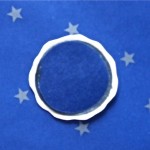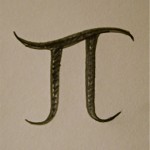What does it mean to do a recapitulation and how do you start? These are some of the questions that people ask. In my experience, recapitulation, when approached from a clinical point of view, isn’t something you do, it’s something that comes to you and takes you on a journey. It’s something that you know you just cannot avoid any longer. It’s your spirit urging you to finally face what has been eating away at your insides your whole life. It’s your fragmented self stating the obvious, that it’s tired of running and hiding, of playing the old games, dodging the truth. The truth hurts, it tells you, but this is hurting more, so let’s stop now, let’s do it differently.
So, how do you start? You answer the call. You say: Okay, I’m ready to find out who I am. I’m ready to find out what it is that won’t let me rest, that won’t let me live and love in a calm and balanced way, totally present, totally accepting of all that comes to me, totally allowing me to be me.

Taisha Abelar, a cohort of Carlos Castaneda, was suspended from a tree during part of her recapitulation, tied up and left to deal with her unconscious and its onslaughts. Later she moved into a tree house in the same tree and lived alone there for months, learning to climb and swing from the branches of this tree that became her home for the duration of her recapitulation. Everything she needed was contained within the container of Self in containment in that tree.
In taking up the process of recapitulation we don’t necessarily need to be tied into a tree. Our psyches have a way of making sure we get what we need, however, some sort of containment is needed. And just how our psyches will work with us will be unique to each of us. Some days we may feel like we are indeed suspended from a tree and other days it may feel as if we are inside a dark cave, another favorite location the Shamans took full advantage of during recapitulation. Containment and learning how to sit with the tension of our inner world is part of the process. As the process naturally unfolds we learn patience, which comes over time, as we practice bearing that tension within containment.
The most important step, as Chuck wrote about in his blog last week, is establishing an adult self to ground us and take the journey with us, an adult self to sit beside the child self, in containment, and explain what is really happening. This is where the first sense of balance is established—inside the self—with a sort of parent self who can plant its feet firmly in reality, set down roots, and outline some rules of engagement. This is the self that knows that some limitations and boundaries are necessary if progress is to be made, like the parent who knows that the kid in you won’t be in a good mood tomorrow if it doesn’t get enough sleep. This is the parent who knows what your life is really like and how you tend to handle things or don’t. This is also the parent who knows how you react when you get scared or triggered.

All of our parts engage in recapitulation, but this parent self has a major role. It lets us know how important it is to set some limits and establish some boundaries to handle the past as it comes flying up to greet us. It knows that it’s going to not only be helpful as we begin our recapitulation, but absolutely necessary. These limits and boundaries will work in many ways, at first in keeping the fragmented self safe while memories come. These limits and boundaries will also be present to let some new ideas and new energy in, in amounts that we can handle. These limits and boundaries extend inward, challenging deeply embedded ideas of the self that must be allowed simultaneous protection and release. These limits and boundaries will challenge us by keeping us safe sometimes and confronting us at others, both supporting and failing us as appropriate, as we go through our recapitulation. These limits and boundaries, as I found out, may at first be well established, firmly entrenched adult patterns of behavior learned from others, from our own parents for instance.
My adult self was pretty much always in control. Firmly established at a young age, she dominated. She was a combination of my own two parents, her responses to life mimicking theirs. I took in, as we are programmed to do, what I saw in my parents. My father, once a free spirit, was dampened by fear and duty later in life. However, he didn’t lose his extraverted desire to be in the world, to get ahead, to always be one step ahead of the next guy until middle age. Before then he was always in a hurry, eager to engage life. Having suffered polio as a young child, his leg never healing properly, he could not run, but that did not stop him from giving the impression that he was always running. What he was running from I never knew, but I somehow understood that you ran from things. And so I took on this characteristic of his and ran too, in more ways than one.
My mother was the opposite of my father. Introverted and withdrawn, she rarely engaged the world. She let him do that while she retreated behind her books, judgments, and intellect. Rational and unsentimental, her boundaries were solid and impenetrable. From observing her, I saw that withdrawing from the world was the way to be, as much as running was. I took on my mother’s protective shell. I watched her retreat from the world, and, although I had no idea why, I knew it was a world of great fear. This was easy to intuit. I became fearful because my parents, in each of their own ways, showed me that the world was a frightening place. I also encountered my own reasons for fear. And so, what my parents taught me about the world proved true and their behaviors, learned at a very young age, served me well for a long time.
In the beginning of my recapitulation, my adult self was much like my parents. Her spirits dampened by fear, she was stern and judgmental. Frightened of everything, she preferred remaining safe in the ways that had always worked. She ran for miles each day, staying attached to an unrelenting code of discipline, running from what she knew not, and then she retreated for the rest of the day, until the next morning when she’d get up and begin again. Day after day, year after year, she used this method to maintain balance, shoring herself up and then shutting herself in.
As the recapitulation progressed, this adult self began to soften, to let things in and let things out in ways that she never would have or could have as her previous self. Holed up within the container of self, she began to see how her own actions had the possibility of negatively affecting her own children. She saw how we inherit not only our genes but everything else from our parents and the world we grow up in. She had to face that what she had inherited did not necessarily belong to her or sit right with her. She also had to face that she was indeed just like her parents.

Thus recapitulation, at this point, entered a new phase of change. With this clarity, the old self began breaking down, along with the rules and regulations placed on the old self by life and circumstance, and a new process of trying on new ideas and a new self began. It literally felt like my clothes didn’t fit anymore, my body didn’t move the same way; my brain reverberated and vibrated constantly as it literally let go of old ideas and attempted to assimilate new concepts of how life works. As new life was experienced outwardly, in the world I lived in, everything changed yet again.
(To be continued next week…)
Still journeying, and always humbly grateful for the opportunity,
Jan









